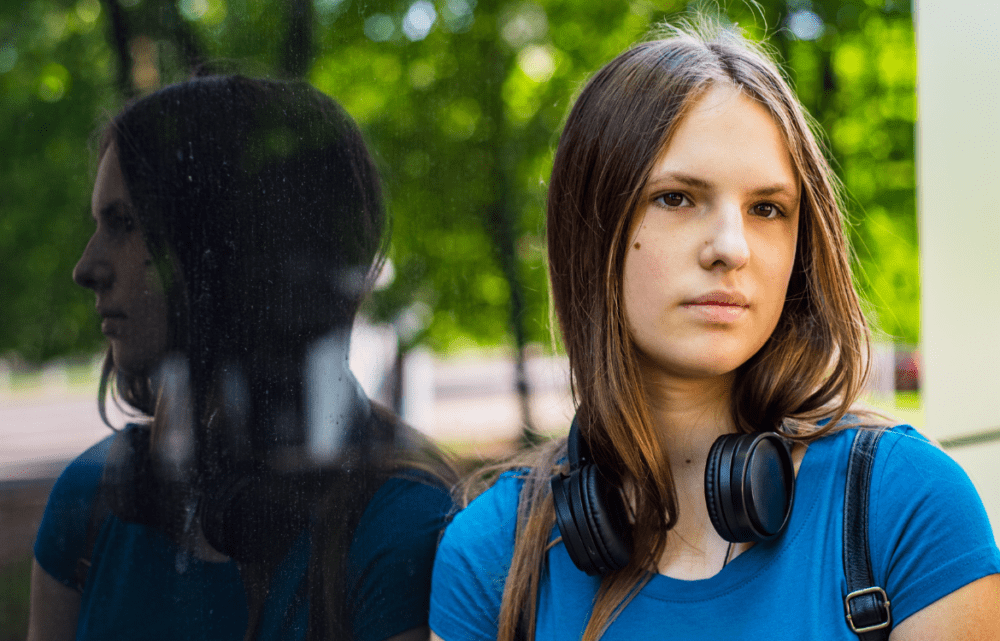Why now?
There are several factors that contribute to the rise in anxiety among teenagers in America today.
While each teen’s experience is unique, these common societal, cultural, and environmental influences are often identified as contributing to increased anxiety.
We outline 8 of the most common factors below:

1. Social Media and Digital Pressure
Constant Connectivity:
Teens today are constantly connected through social media, which can amplify feelings of inadequacy and comparison. Social media often promotes unrealistic standards of beauty, success, and happiness, which can fuel anxiety.
Cyberbullying:
The rise of online bullying, where teens may experience harassment, can cause heightened anxiety, as they often feel there is no escape from these interactions.
2. Academic and Performance Pressure
Increased Academic Expectations:
There is greater pressure on teens to excel academically, not just to pass but to be outstanding in order to secure college admissions or scholarships. The intense focus on test scores, extracurricular activities, and future career paths can create overwhelming stress.
Fear of Failure:
This pressure can make teens feel like they have little room for mistakes, and any setback may feel catastrophic to their future, increasing anxiety.
3. Economic and Job Market Uncertainty
Economic Concerns:
Teens today are growing up in a world where economic stability feels less certain. Concerns about student debt, job market competition, and future financial independence contribute to anxiety about their long-term well-being.
4. Political and Global Events
Global Crises:
Many teenagers are more aware of and affected by global issues such as climate change, mass shootings, and political instability. This constant exposure to troubling news can create a sense of hopelessness and fear.
Polarization:
The political and social climate in the U.S. has become highly polarized, which can leave teens feeling uncertain about the future and their place in society.
5. Family Pressures and Mental Health Awareness
Family Dynamics:
Financial stress, divorce, or parental expectations can heighten anxiety in teens. Many teens also feel pressure to meet their family’s expectations in both academics and extracurricular activities.
Increased Awareness of Mental Health:
While there is more awareness of mental health issues today, this can lead to increased self-diagnosis and hyper-focus on one’s own mental state. While awareness is a positive step, teens might also feel anxious about their mental health and seek labels or diagnoses prematurely.
6. Lack of Coping Mechanisms
Decreased Outdoor and Physical Activity:
With more time spent indoors and in front of screens, many teens are not engaging in the physical activities or outdoor play that are proven to reduce stress. Lack of physical outlets can worsen anxiety symptoms.
Sleep Deprivation:
Many teens are not getting enough sleep due to busy schedules, digital distractions, or anxiety itself. Sleep deprivation can exacerbate feelings of anxiety.
7. Pandemic Aftermath
Social Isolation:
The COVID-19 pandemic caused many teens to experience long periods of social isolation, disrupting their development and leaving them feeling anxious about social interactions or falling behind academically.
Uncertainty and Loss:
The pandemic introduced unprecedented uncertainty and, for many, personal loss, which can trigger long-term anxiety.
8. Identity and Social Belonging Challenges
Identity Exploration:
Teens are also navigating questions of identity (e.g., gender, sexuality, race) in a world where these conversations are increasingly complex and public. While this openness can be liberating for some, it can also cause anxiety around fitting in or being judged.
In Conclusion
These factors create a highly pressurized environment for today’s teenagers.
Combined, they can contribute to the significant rise in anxiety seen in this age group. Addressing these issues requires a holistic approach that includes support from families, schools, communities, and mental health professionals.

